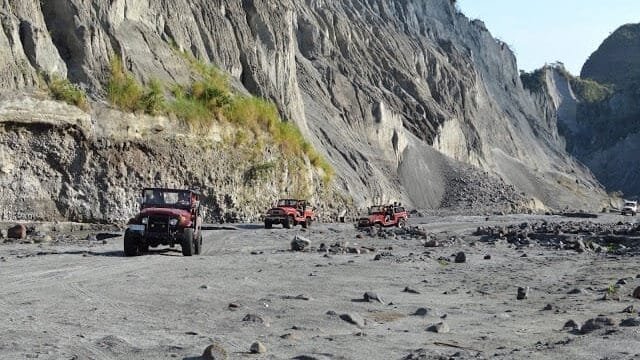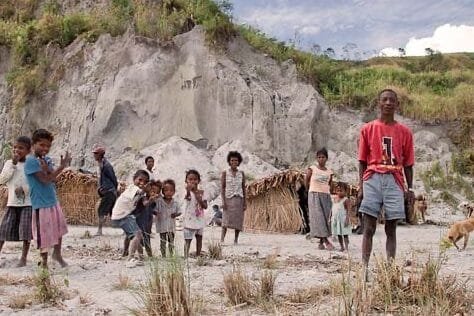STANDING IN SOLIDARITY WITH MT PINATUBO INDIGENOUS PEOPLE
On April 18, 2025, Aeta communities in Capas, Tarlac staged a peaceful blockade to protest the lack of fair compensation from tourism on their ancestral lands. Though some were briefly detained, they were released the same day, and the NCIP questioned the legality of these arrests. The blockade ended on April 25, but the Aetas continue to demand leadership reinstatement and a fair share of tourism revenues. In 2024, tourism generated ₱4.5 million, yet some Aeta communities received as little as 10% of the income. Key issues include lack of Free, Prior, and Informed Consent (FPIC) and weak enforcement of their Ancestral Domain Titles. Recommendations include inclusive dialogues, equitable revenue-sharing models, and capacity-building for Aeta participation in tourism. A rights-based, sustainable tourism approach is needed to honor indigenous contributions while supporting economic development.

The 18 April 2025, protest by Aeta communities in Capas, Tarlac, wherein they blocked access to the Mt. Pinatubo Crater, brings to light enduring issues concerning indigenous rights, equitable tourism practices, and ancestral domain recognition.
Situation Overview
On April 18, Aeta community members initiated a peaceful barricade along the Mt. Pinatubo trail to protest the lack of fair compensation from tourism activities conducted on their ancestral lands.
While some individuals were briefly detained by police, they were released the same day without charges. The National Commission on Indigenous Peoples (NCIP) has since sought clarification from law enforcement regarding the propriety of these detentions.
As of April 25, the blockade has been lifted. However, the Aeta communities continue to demand the reinstatement of their leaders and a fair share of tourism revenues.
Key Issues Identified
Several months ago, I had the privilege of listening to Aeta leaders from Central Luzon facilitated by our justice-based Peace and Reconciliation partners. Over the course of two days, a series of sessions surfaced several key concerns:
1. Disparities in Revenue Sharing: Reports indicate that in 2024 alone, tourism activities generated approximately ₱4.5 million. However, Aeta communities have received minimal shares, with some areas reporting as low as 10% distribution.
2. Lack of Free, Prior, and Informed Consent (FPIC): Tourism operations have been conducted without genuine FPIC from the Aeta communities, violating their rights under the Indigenous Peoples’ Rights Act (IPRA).
3. Ancestral Domain Recognition: Despite holding Certificates of Ancestral Domain Titles (CADTs), Aeta communities face challenges in asserting control over their lands, especially concerning tourism development.

Recommendations for Peacebuilding and Sustainable Tourism
1. Establish Inclusive Dialogue Platforms: Facilitate regular consultations among Aeta communities, local government units (LGUs), tourism operators, and the NCIP to ensure transparent decision-making and address grievances effectively.
2. Implement Equitable Revenue-Sharing Models: Develop standardized frameworks that guarantee Aeta communities receive a fair and transparent share of tourism revenues, possibly through community-managed funds.
3. Ensure Compliance with FPIC Protocols: Mandate that all tourism activities within ancestral domains obtain genuine FPIC from indigenous communities, aligning with national laws and international standards.
4. Capacity Building and Empowerment: Invest in training programs for Aeta community members to enhance their participation in tourism-related activities, such as guiding, hospitality, and cultural presentations.
5. Legal and Policy Reforms: Review and harmonize existing ordinances and policies related to tourism in ancestral domains to prevent overlapping jurisdictions and conflicts.
Addressing these recommendations can pave the way for a more inclusive, respectful, and sustainable tourism model that honors the rights and contributions of indigenous communities while promoting economic development.



